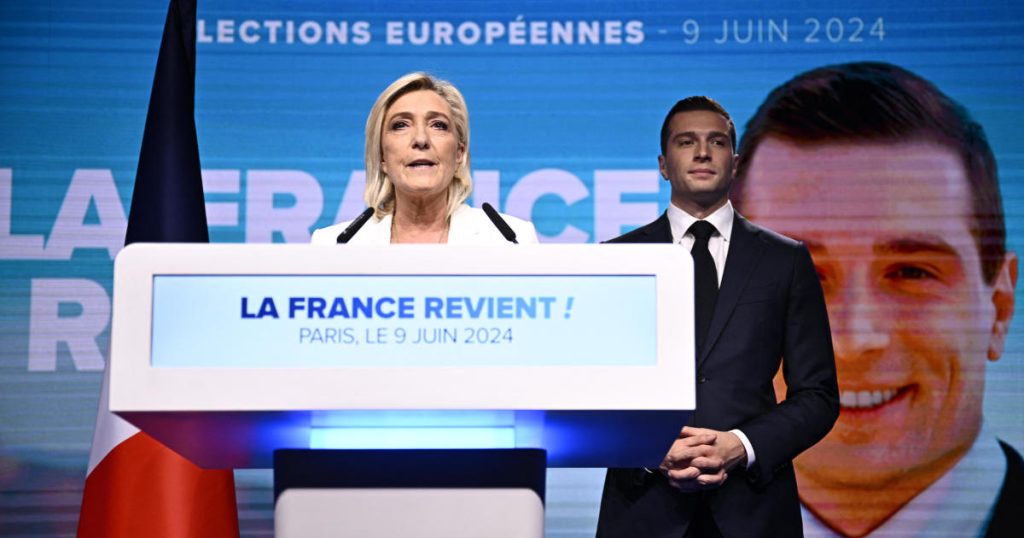The recent European Parliament elections resulted in a shift to the right, with far-right parties making significant gains across the continent. In France, the far-right National Rally party received the most votes, prompting President Emmanuel Macron to dissolve the parliament and call for snap elections. In Italy, Prime Minister Giorgia Meloni’s neo-fascist Brothers of Italy party also saw a surge in support. However, in Germany, the extreme-right Alternative for Germany party finished in second place despite facing scandals. Slovakia experienced a surprise defeat for Prime Minister Robert Fico’s Smer-SD party, which lost to the liberal Progressive Slovakia party.
The rise of far-right parties in the European Parliament highlights a shift in the political landscape as once-fringe policies gain acceptance. While the far-right parties may have only gained a few seats in the 720-seat parliament, their growing influence poses a threat to the traditional liberal European mindset. European Commission President Ursula von der Leyen’s center-right European People’s Party, however, maintained its hold as the largest bloc in the parliament. Von der Leyen emphasized the importance of maintaining stability and unity in the face of growing support for extreme positions on both the left and right.
The outcomes of the European Parliament elections have significant implications for the future of Europe and the European Union. The rise of far-right parties could reshape European governance and policy-making, leading to increased tensions within the bloc. Von der Leyen’s efforts to form a grand coalition to govern signal a willingness to collaborate across party lines to maintain stability and effectiveness. The success of such efforts will depend on securing support from national leaders and building a working majority in the European Parliament.
The results of the elections reflect a growing discontent with traditional centrist parties and a shift towards more extreme positions. Leaders like Macron, Meloni, and Scholz are facing challenges as they navigate volatile political landscapes. Macron’s decision to dissolve the French Parliament and call for snap elections reflects the urgency of the situation in light of the far-right’s gains. Meloni’s attempts to moderate her party’s image and position herself as a bridge between conservatives and moderates reveal a strategy to maintain stability amidst changing political currents.
As Europe grapples with the rise of far-right parties and the challenges of forming stable governments, the role of centrist and moderate forces becomes crucial in maintaining unity and progress. The outcomes of the elections have underscored the need for collaboration and compromise to address the growing divisions within the European Union. The coming years will likely see continued political turmoil and uncertainty as parties across the political spectrum seek to navigate complex challenges and shape the future of Europe.


